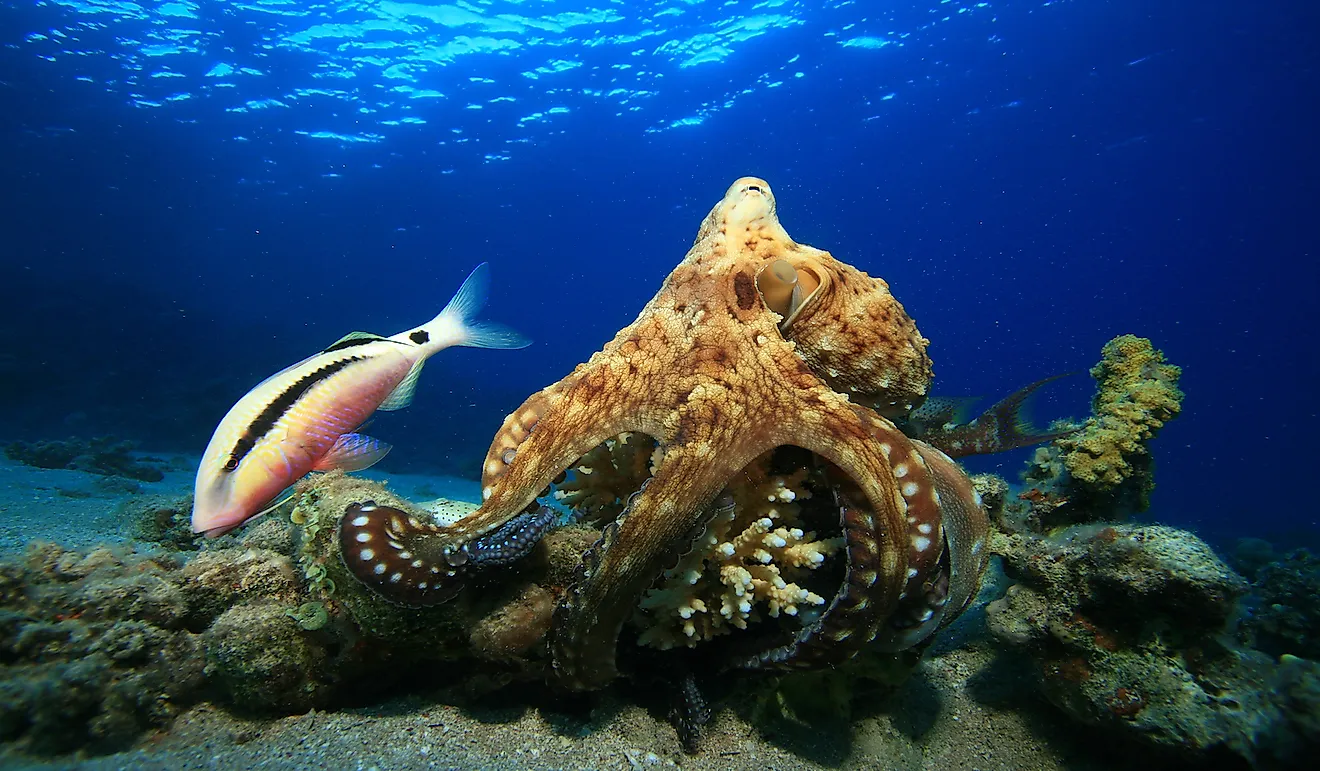What Does The Octopus Eat?

What Is An Octopus?
The common octopus, scientifically named Octopus vulgaris, is only one of nearly 300 species of octopuses worldwide. Octopuses are ocean creatures that live in coral reefs, small crevices, and under rocks on the ocean floor. They possess several unique features, including eight arms and bulbous heads. Additionally, octopuses are boneless, which makes it easy for them to squeeze through very tight and narrow spaces. Other interesting facts about these animals include that they have three hearts and blue blood that transports oxygen and nutrients throughout the body. Octopuses feed on a variety of food sources, as discussed below.
Diet Of The Octopuses
There are two types of octopuses with regards to their feeding habits: bottom-dwelling octopuses and open-ocean octopuses. Bottom-dwelling octopuses primarily feed on mollusks, polychaete worms, and crustaceans such as clams, shrimps, lobsters and snails. Open-ocean octopuses feed on fish, birds, and snails. Young octopuses feed on plankton and other animal larvae. When their common source of food depletes, octopuses may feed on smaller species of octopus to survive. In most cases, octopuses hunt and feed at night. However, they may also feed during the day when prey cross their path. Octopuses are carnivorous, meaning they only feed on meat.
Feeding Adaptations
During feeding, the octopus uses a strong and powerful beak to bite its prey and inject it with venom. This venom does not kill the prey, but rather immobilizes it so that the octopus can easily feed on it. Once the prey becomes immobilized, the octopus uses its beak to grasp and rip the prey apart into smaller pieces. They can also use the webbed, sticky suction cups on their arms to seize prey and prevent them from escaping. The suction cups are also important for the tasting of food eaten by octopuses.
Most sources of food that octopuses prey on are enclosed in shells, which need to be removed before consumption. If the octopus is unable to remove a prey from its shell, it will release a nerve toxin. Octopuses have an instinctive way of determining the amount of toxin required for each type of prey. They are also adapted to see through murky waters, which is an adaptation that gives them an advantage over their prey. Octopuses can also blend in and camouflage well with their environment, making it possible to approach prey without being noticed.











